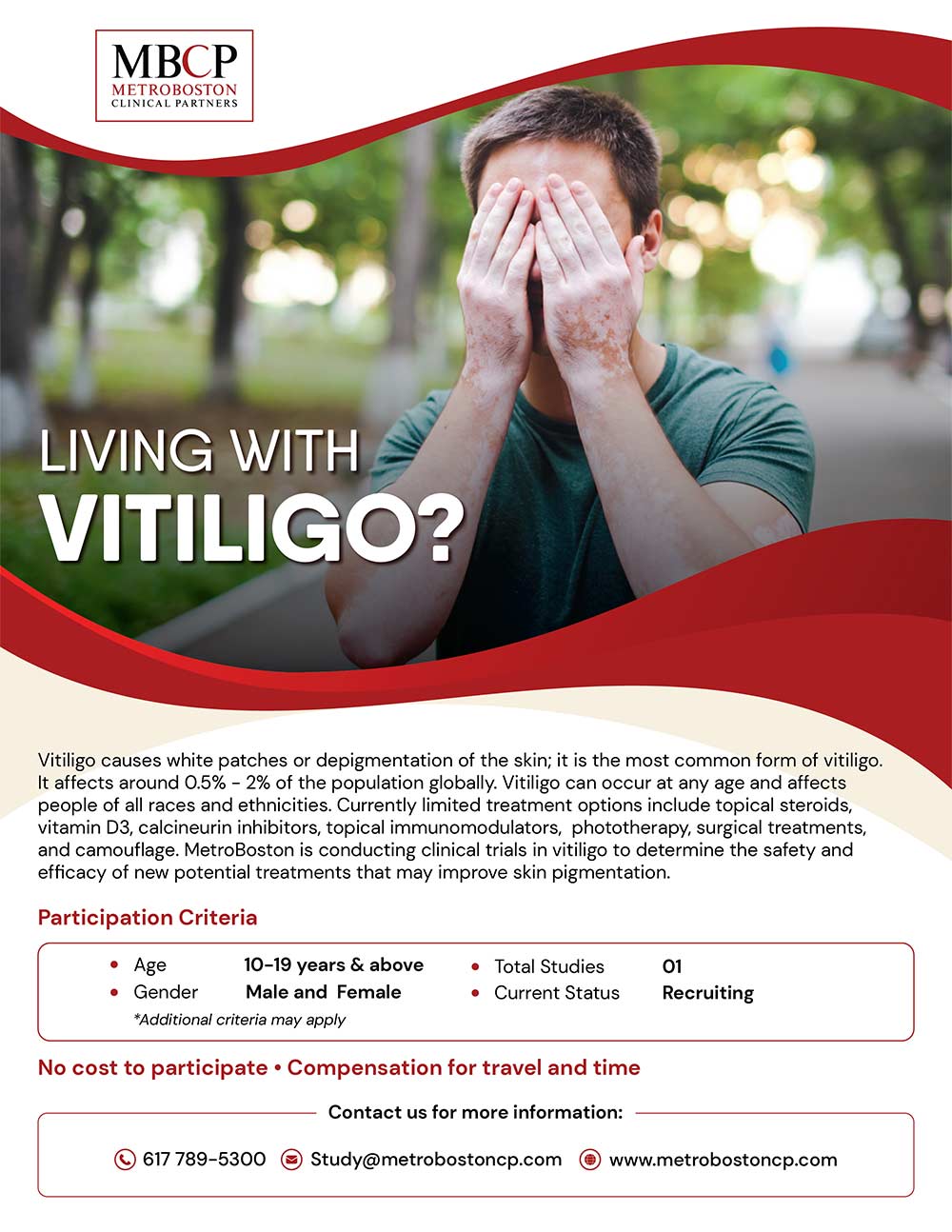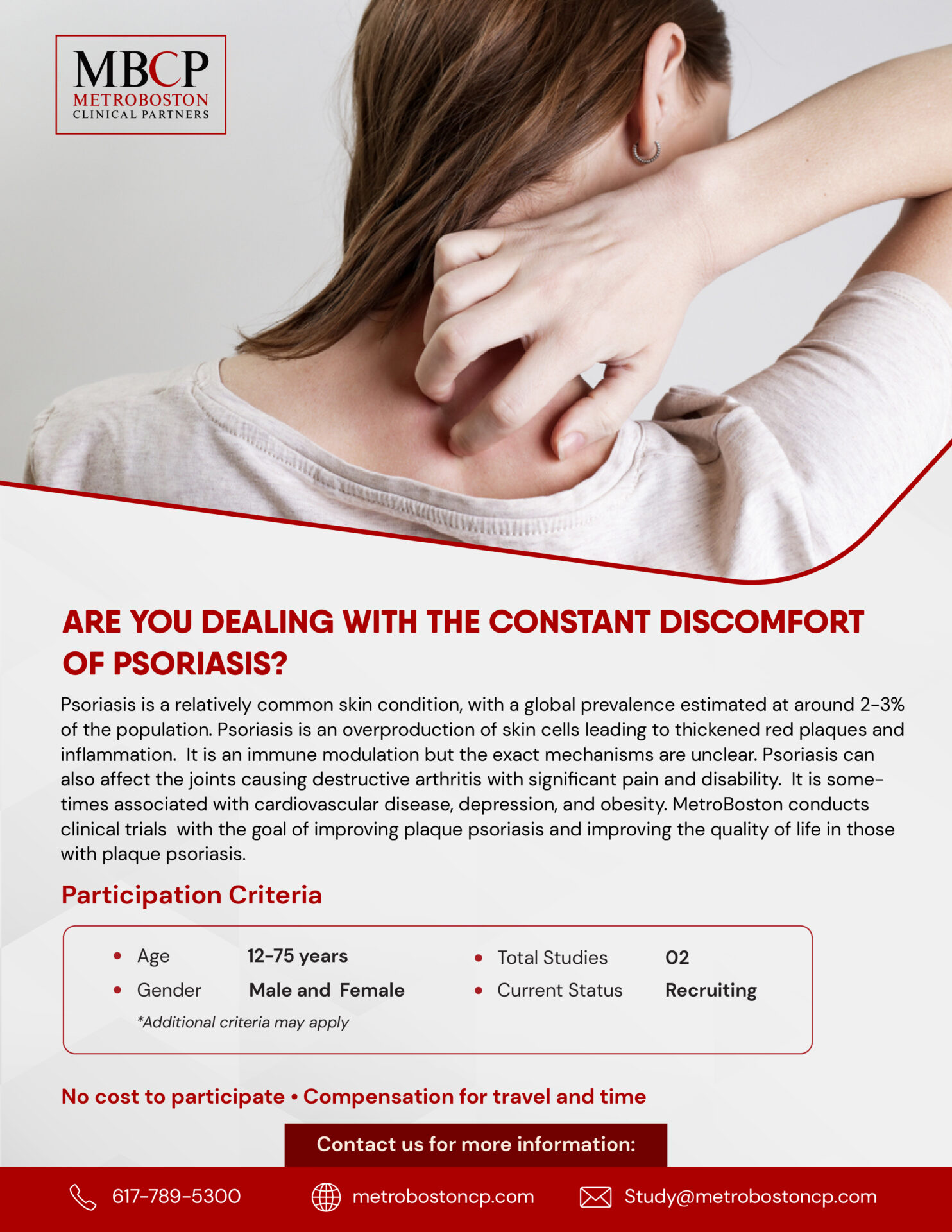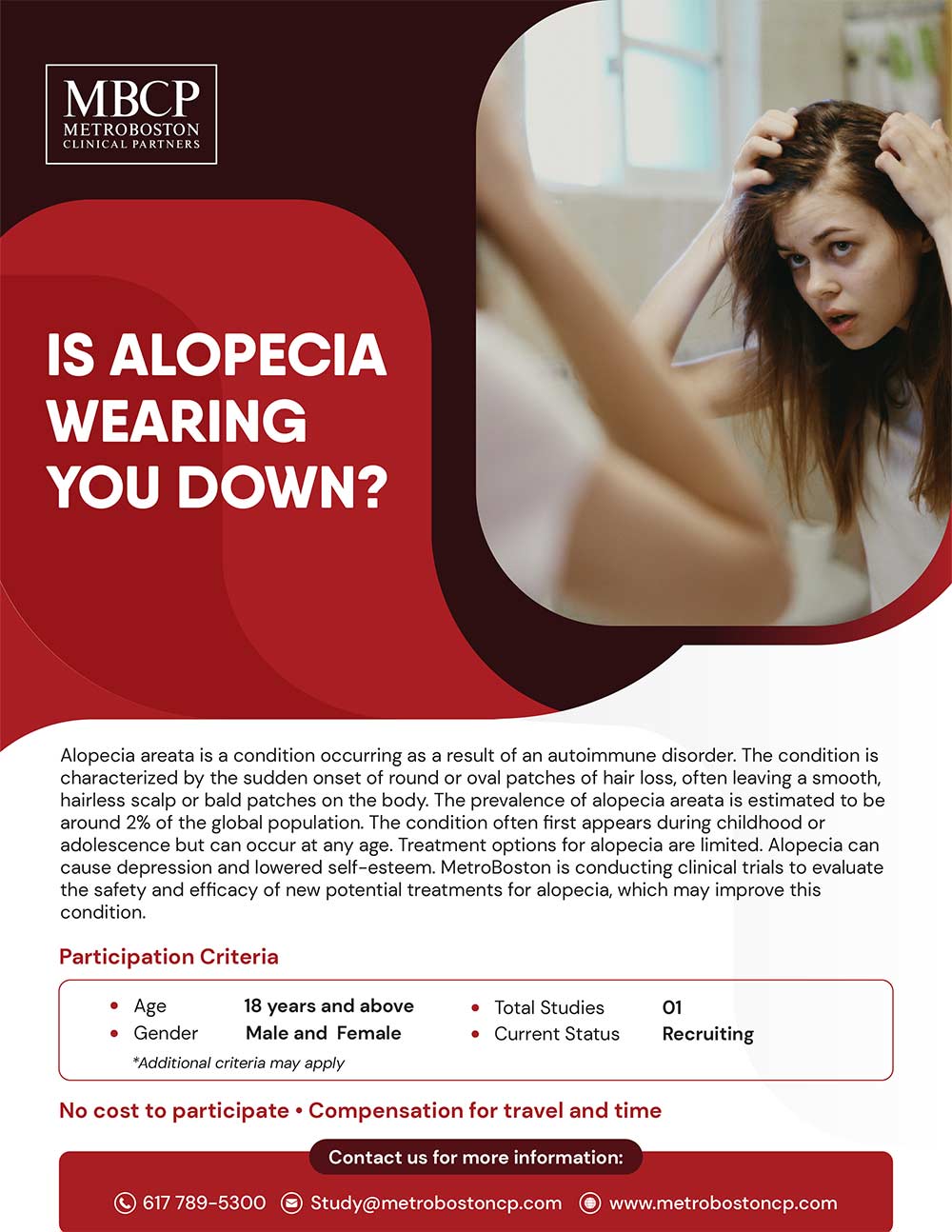Skin conditions are serious and can affect many areas of a person’s life including self-esteem.
Participating in one of our clinical trials can help improve our understanding of the causes and treatment of skin diseases improving patient outcomes.
Our studies include patients from all backgrounds and ethnicities. This enables us to conduct studies that can lead to improved treatment of dermatologic and other diseases in a diverse group of people.

Pruritus, also known as itching, is a common symptom of eczema. Itching is often one of the first symptoms that people with eczema experience and can be one of the most distressing aspects of the condition. Pruritus affects 90% of adults who have Eczema. Some conventional treatments include moisturizers, topical corticosteroids, topical or oral immunomodulators, and allergen avoidance. Pruritis (itching) associated with eczema can be debilitating We are conducting clinical trials to assess the efficacy and safety of potential new treatments that can improve Atopic dermatitis.
Adults
Recruiting
Brighton – Boston
Male and Female
04
Hidradenitis suppurativa (HS) is a skin disease that affects hair follicles in areas such as the armpits, groin, under breasts, and buttocks. HS causes recurrent painful nodules and abscesses, which lead to scarring and disfigurement. Hidradenitis suppurativa affects approximately 4% of the population globally, and while it is non-life threatening HS can lead to skin infections and other severe illnesses, and rarely squamous cell cancer. MetroBoston is conducting clinical trials to determine the safety and efficacy of new potential treatments.
18 years and above
Recruiting
Brighton – Boston
Male and Female
01


Vitiligo causes white patches or depigmentation of the skin; it is the most common form of vitiligo. It affects around 0.5% – 2% of the population globally. Vitiligo can occur at any age and affects people of all races and ethnicities. Currently limited treatment options include topical steroids, vitamin D3, calcineurin inhibitors, topical immunomodulators, phototherapy, surgical treatments, and camouflage. MetroBoston is conducting clinical trials in vitiligo to determine the safety and efficacy of new potential treatments that may improve skin pigmentation.
10-19 years & above
Recruiting
Brighton – Boston
Male and Female
01
Psoriasis is a relatively common skin condition, with a global prevalence estimated at around 2-3% of the population. Psoriasis is an overproduction of skin cells leading to thickened red plaques and inflammation. It is an immune modulation but the exact mechanisms are unclear. Psoriasis can also affect the joints causing destructive arthritis with significant pain and disability. It is sometimes associated with cardiovascular disease, depression, and obesity. MetroBoston conducts clinical trials with the goal of improving plaque psoriasis and improving the quality of life in those with plaque psoriasis.
12-75 years
Recruiting
Brighton – Boston
Male and Female
02


Alopecia areata is a condition occurring as a result of an autoimmune disorder. The condition is characterized by the sudden onset of round or oval patches of hair loss, often leaving a smooth, hairless scalp or bald patches on the body. The prevalence of alopecia areata is estimated to be around 2% of the global population. The condition often first appears during childhood or adolescence but can occur at any age. Treatment options for alopecia are limited. Alopecia can cause depression and lowered self-esteem. MetroBoston is conducting clinical trials to evaluate the safety and efficacy of new potential treatments for alopecia, which may improve this condition.
18 years and above
Recruiting
Brighton – Boston
Male and Female
01
Dermatology is a branch of medicine that focuses on diagnosing, treating, and managing skin, hair, and nail conditions. Dermatology Clinical Trials include treatment for diseases related to skin, hair, and nails.
Dermatologists are medical doctors with a specialization in dermatology. They have expertise in diagnosing and treating both common and rare skin conditions.
There are several subspecialties within the field of dermatology, each focusing on specific areas or conditions. Here are four common types of dermatology subspecialties:
Some of the most common conditions that dermatologists treat include:
Dermatology studies also help in identifying symptoms and developing a treatment plan.